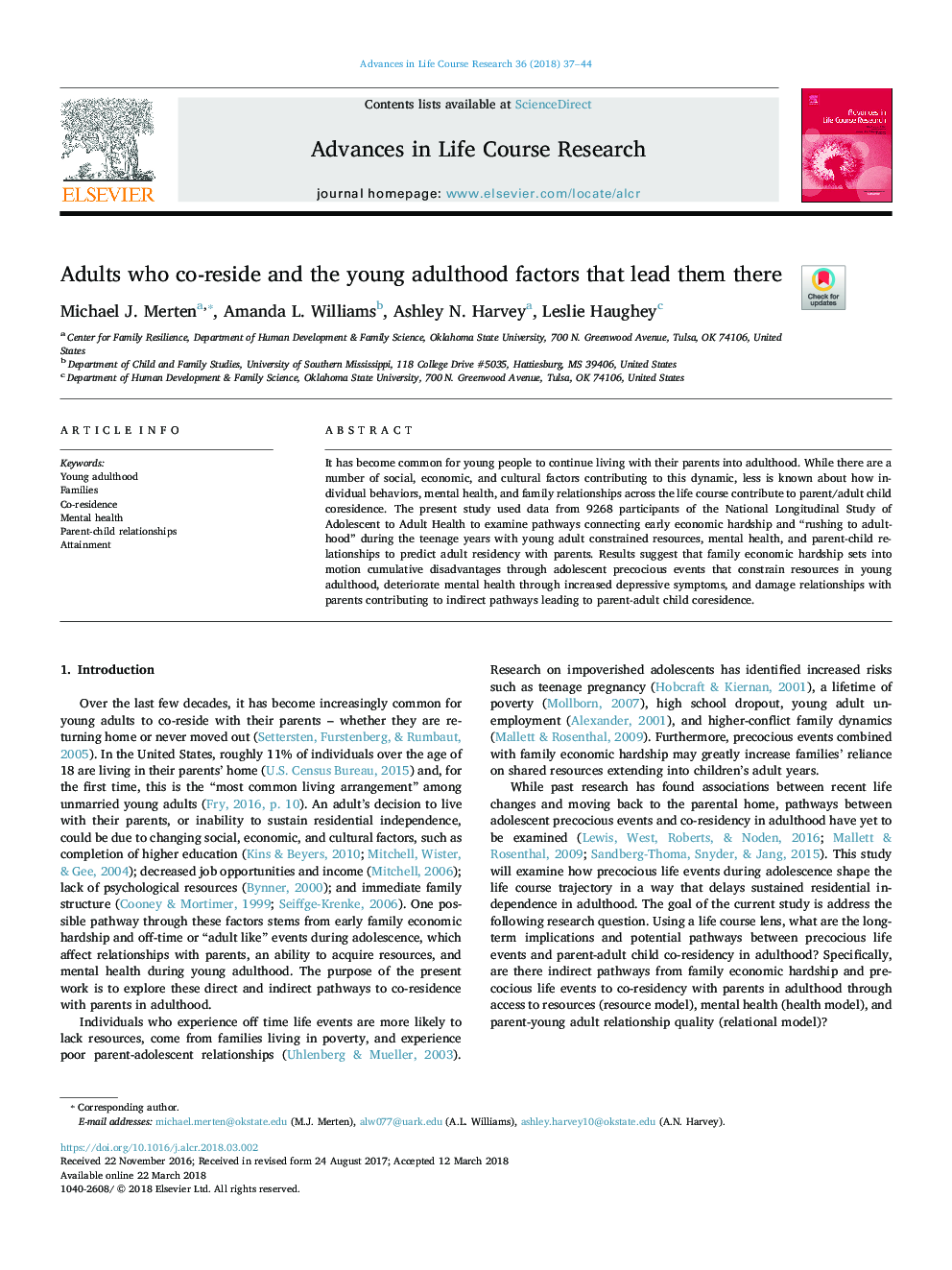| Article ID | Journal | Published Year | Pages | File Type |
|---|---|---|---|---|
| 6784728 | Advances in Life Course Research | 2018 | 8 Pages |
Abstract
It has become common for young people to continue living with their parents into adulthood. While there are a number of social, economic, and cultural factors contributing to this dynamic, less is known about how individual behaviors, mental health, and family relationships across the life course contribute to parent/adult child coresidence. The present study used data from 9268 participants of the National Longitudinal Study of Adolescent to Adult Health to examine pathways connecting early economic hardship and “rushing to adulthood” during the teenage years with young adult constrained resources, mental health, and parent-child relationships to predict adult residency with parents. Results suggest that family economic hardship sets into motion cumulative disadvantages through adolescent precocious events that constrain resources in young adulthood, deteriorate mental health through increased depressive symptoms, and damage relationships with parents contributing to indirect pathways leading to parent-adult child coresidence.
Related Topics
Physical Sciences and Engineering
Mathematics
Statistics and Probability
Authors
Michael J. Merten, Amanda L. Williams, Ashley N. Harvey, Leslie Haughey,
